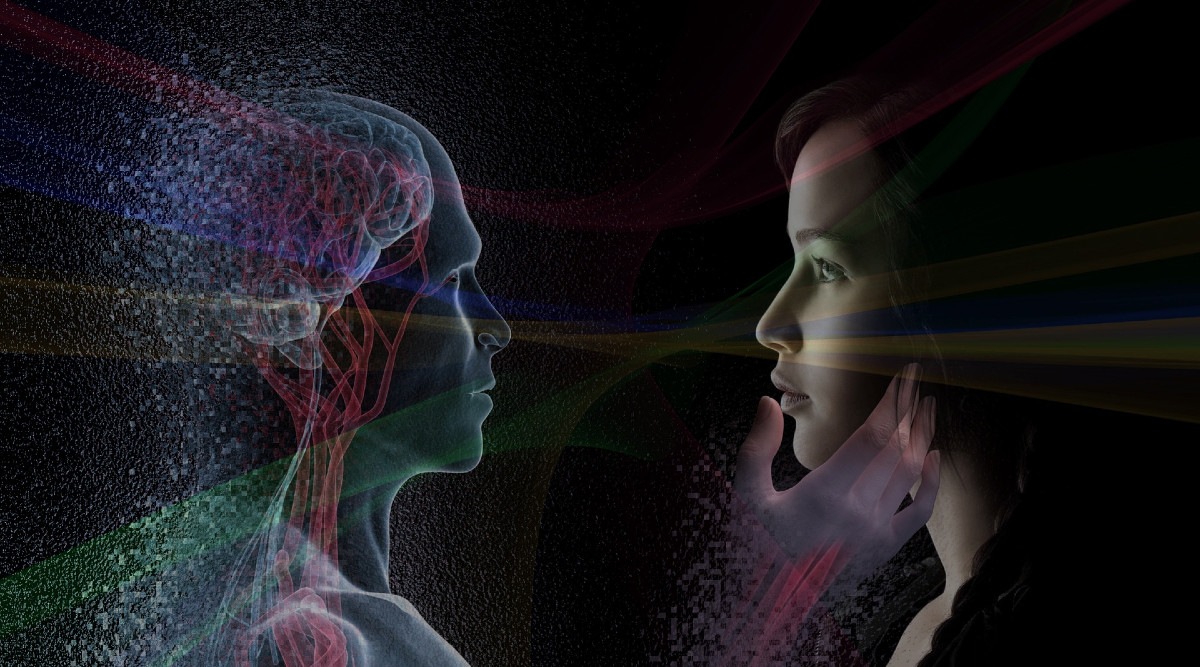78% of Indians unable to tell apart love letters written by ChatGPT & human, reveals McAfee study
Cybercriminals often engage in long conversations to appear authentic to lure unsuspecting victims, and ChatGPT can make that job a lot easier.
 The research surveyed 5,000 people across nine countries to discover how AI is changing love and relationships. (Image: Pixabay)
The research surveyed 5,000 people across nine countries to discover how AI is changing love and relationships. (Image: Pixabay) Can you tell apart love letters written by human and computers? If yes, congratulations! You are part of a motley group of humans who can tell the difference.
A recent survey by antivirus software company, McAfee, as many as 78 per cent of Indians are unable to differentiate between a love letter written by ChatGPT and one by human. The computer security company has said that the findings could have ramifications, with the likelihood of many falling for scams facilitated by AI-generated texts.
The research titled, Modern Love, stated that 76 per cent of Indian respondents who engaged with a stranger online were also asked to transfer money. The company said that it was “always a red flag,” especially if users have never met the other person. Although cybercriminals may not directly seek money, they may extract personal details which is equally valuable. Information such as place of birth, passport details can be accessed online or even sold on the dark web, revealed the study.
The research surveyed 5,000 people across nine countries to discover how AI and the internet are affecting love and relationships.
Cybercriminals often engage in long conversations to appear legit and lure unsuspecting victims, and AI chatbots like ChatGPT can make that job easier by generating texts for the bad actors.
Fortunately, many people are already vigilant when interacting with strangers online, the research added. Requests for personally identifiable info such as DOB, email, home address, and intimate photos/videos often give scammers away. Not being able to meet in person or do video chats (43%), fake profile photos (41%), and requests for personal information (41%) are some of the most common ways people spot scammers.
Cybercrime aside, there are other concerns surrounding ChatGPT’s usage in love and relationships. 62% of Indian adults surveyed say they’re planning to use AI to help write love letters this Valentine’s Day, the highest out of all countries surveyed. 73% will also be using AI to boost dating profiles. Among the reasons given for using AI as a ghostwriter were that it would make the sender feel more confident (59%), lack of time (32%), or lack of inspiration (26%).
About 60% of Indian respondents preferred a machine-generated love note in the style of E. E. Cummings’s 1952 poem ‘I Carry Your Heart with Me,’ demonstrating the growing challenges people face in identifying whether info received online is from a real person or a bot.
To safeguard oneself from AI-generated text, McAfee suggests the following precautionary measures:
1. Never send money or gifts to someone you haven’t met in person—even if they send you money first.
2. Talk to someone you trust about this new love interest. It can be easy to miss things that don’t add up. So, pay attention if your friends or family are concerned.
3. Take things slow in a relationship. Ask questions and look for inconsistent answers.
4. Try a reverse-image search of any profile pictures the person uses. If they’re associated with another name or with details that don’t match up, it’s a scam.
5. Use privacy and identity protection technology. Security software can prevent you from clicking on malicious links that a scammer may send you online, while also steering you clear of other threats like viruses, ransomware, and phishing attacks in general.
While there’s software now like OpenAI’s new AI classifier tool and GPTZero which can detect if something’s written by AI or by a human, McAfee has also provided a more manual way: “There are a few tell-tale signs of an AI-written message. For example, AI often uses short sentences and reuses the same words. Additionally, AI may create content that says a lot without saying much at all. Because AI can’t form opinions, their messages may sound substance-less.”







